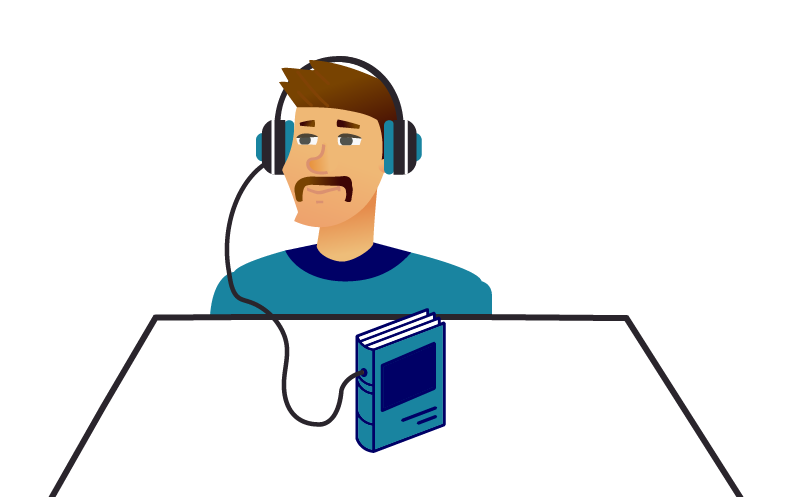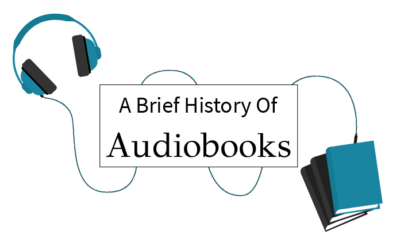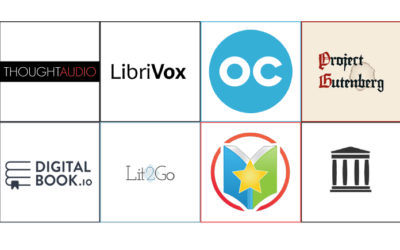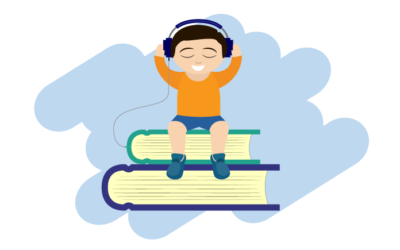How Audiobooks Opened Up A Whole New World For Me
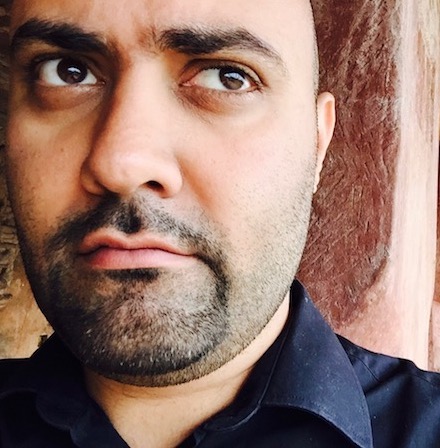
Ram Solanki
June 27, 2018
Even when it came to fiction, I would read a page, then re-read it again and again, wondering if I had missed something important, my default configuration forcing me to squeeze value from words that had no such function by design.
Take the classic mystery for instance- it’s about unravelling clues to eventually be able to put all the pieces together and solve the given puzzle, but here my mind was on overdrive seeking clues in every word, every sentence, every page. I’d even sit with a dictionary beside me and look up words I didn’t understand, to the point where I struggled to finish a novel for over a year, trying every day, till eventually I got fed up and gave up reading for pleasure.
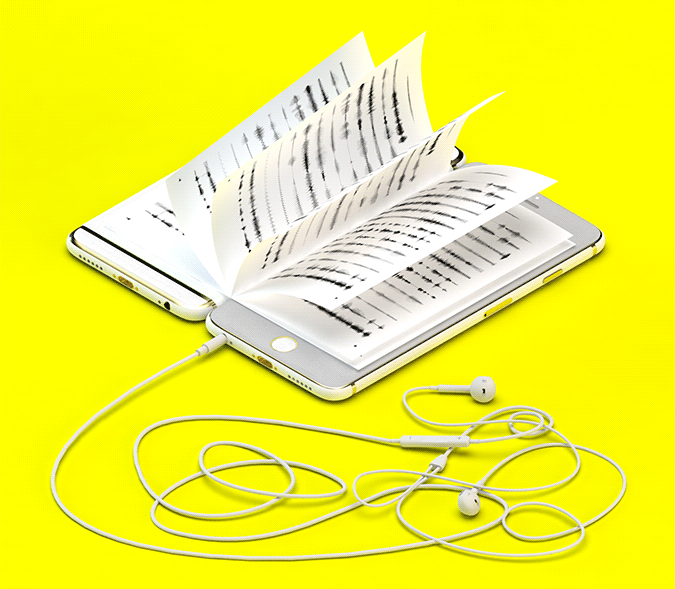
(Source: Medium)
There are a number of articles out there that would tell you things such as how 85% of what we learn we learn from hearing, etc, but I have no such strong opinions. I just see the obvious- that all consumption of data is sensory, whether it’s your eyes, your ears, or your touch (as is the case for braille readers).
The main advantages for me are as simple as easy access and convenience, the ability to read even when my hands are full. Most digital devices have designated applications for audiobooks and have tweaks for speed too- this allows you to adjust pace according to your preference. I use 1.5x for the most part.


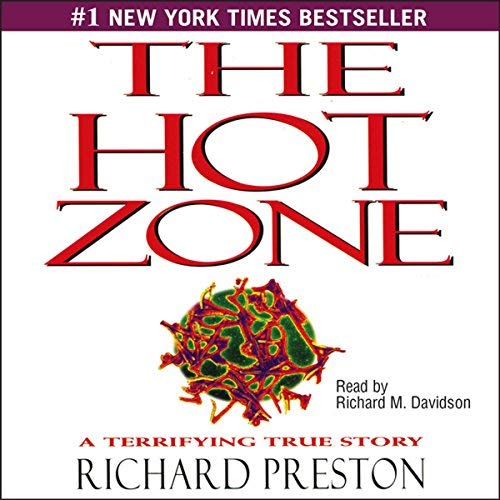
1222 (Audiobook | Book) is a Norwegian murder mystery carrying many of the tropes that come with the territory, and yet it’s a refreshing telling. The local nuances, however, are not something I would have picked up in a reading of the translation myself; I got them from the inflexions in the tone of the narrator. I felt like I was getting a more authentic version of how they sound tonally, from humour to the manner in which sentences are delivered. Had I read it myself, it would have just sounded, in my head like, me. This is the first book where I felt that the rhythm of how a sentence is written on a page is something open for interpretation.
1984 (Audiobook | Book) took me inside the mind of the lovable fool, Winston. Simon Prebble is the perfect narrator in the Audi Award finalist recording, which is considered the definitive recording among the numerous audio versions out there. After listening to multiple versions of the first chapter, it all made sense- I understood why. The narration itself gives the impression and flavour that this bumbling fool is aware of the perils he’s up against and will likely fail and yet we hope he is triumphant. This is the audiobook that made me appreciate that some read, some narrate, while some truly perform and those are a different beast altogether, and an absolute treat.
The Hot Zone (Audiobook | Book) is the audiobook that cured my hardcore resistance toward non-fiction. It’s an extremely well-researched and detailed book that plays out like a dramatised documentary following the journey of the Ebola virus. From people that landed up in the wrong place at the wrong time, to specialists who got involved in figuring out certain inexplicable fatalities, that later were attributed to the virus considered one of the most dangerous the world has seen.
Richard M. Davidson’s authoritative narration packs suspense into the most mundane of procedures and instils it with drama and dread, treating each step of each chore at home, to the processes at work with disclaimers of what could be, what was and what close calls had occurred. The dangers from the slightest mistakes make you truly believe that our survival as a species is a miracle. Of the many involved in research, testing and transportation of the virus, the majority were sensible and careful, yet at any stage, the tiniest of missteps could have been the end for humanity. It’s chilling and even scarier because it’s the truth. It played to my ears like a horror film!!
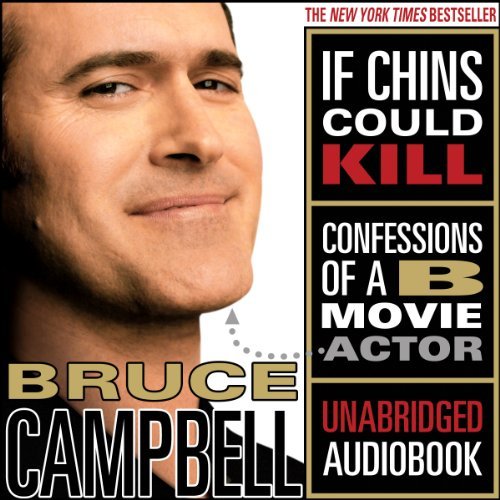
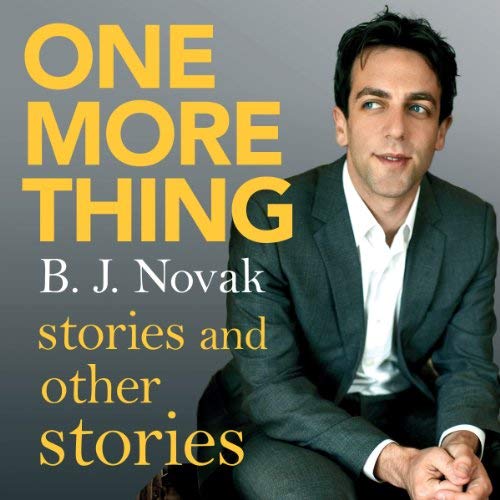
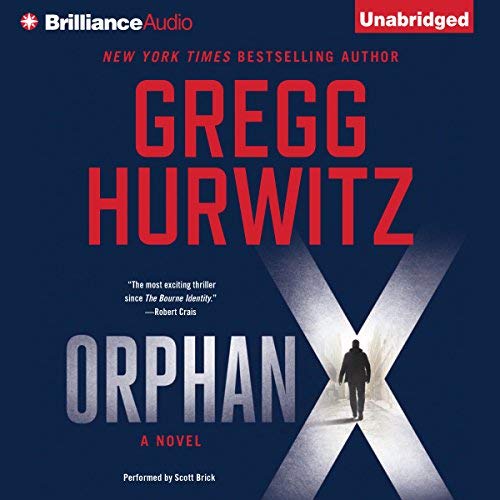
Hearing it from him adds the personal touch, allowing his childlike fascination and deep love for his work to seep through. It’d be tough not to respect and even envy a little those one-in-thousands who actually follow their dreams and yet the first-hand delivery from him makes it feel relatable, like something you and your friends could give a shot too.
His goofy and lovable ‘dude’ persona is only enhanced with his dulcet tones; this is the only audiobook where I’ve genuinely felt like I’m going to miss that dude, feeling wishful that he was a buddy I had made in college and could call upon on when I needed a friendly chat.
One More Thing: Stories and Other Stories (Audiobook | Book) was actually one of the books I had picked up in the month of March as a part of The Extraordinary Reading Challenge. The multi-star studded affair contains numerous short quirky stories with a bite-sized serving of humour that I’ve revisited for its voice-acting.
J. Novak is not only funny but clearly well-versed in literature as well as observant of the subtle quirks of people. His cast only enhances the experience, ranging from Mindy Kaling, Lena Dunham, Julianne Moore, Emma Thompson, Katy Perry, Jason Schwartzman and Novak himself. This was my first experience with numerous narrators and I guess this is where the lines between books and audio dramas begin to blur.
Orphan X (Audiobook | Book) might be the best thriller I’ve experienced since the Bourne Trilogy (let’s just say they stopped at three) and largely this is down to the voice of Scott Brick. The way his voice fluctuates as you follow the life of this rogue agent, you feel anticipation, you feel pain, you feel exhausted and out of breath, as this one man weapon helps people under the guise of the legend of “The Nowhere Man”. It’s a ride of emotion and drama that works on pacing.
You may notice with this one how the speed at which the text is delivered changes based on the scenes at play. The dialogue between the protagonist and others sits with the right pauses and even when he’s trying to end a phone call in a hurry, you can sense his haste. It’s not the same when you read text. I have since visited many of the other works of Gregg Hurwitz and the only time they’ve fallen short of expectation is when it wasn’t the same narrator.
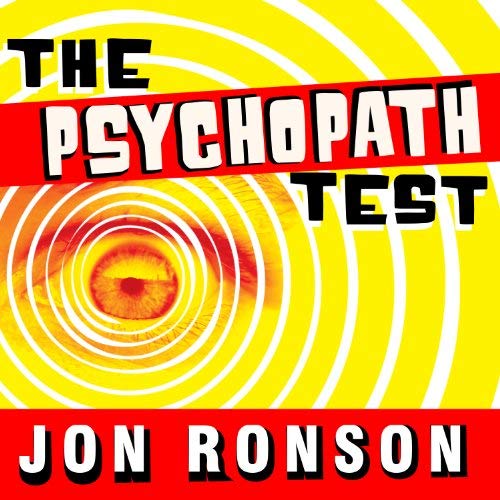

It follows a journalist who peeks into the rabbit-hole of psychologists, psychotherapy and mental asylums, looking into the methods used to diagnose and assess the folks there. It’s quirky and funny, in a very British kind of way, but it simply would not have been the same without the accent, mannerisms and deadpan voice of the writer Jon Ronson.
He enhances the humour and confusion in his mind throughout by saying some of the most ridiculous things people believe, right back at them. His sarcasm notwithstanding, he hilariously confirms that many of those diagnosing madness believe the most outlandish things and through his investigation, debates whether their power to diagnose should be given merits (or not).
Story: Substance, Structure, Style, and the Principles of Screenwriting (Audiobook | Book) is a great revision tool. This book is obviously targeted at those interested in screenwriting, so it may not be for everyone. However, my reason for mentioning it is that although my personal journey had brought me to associate learning with reading text, and listening with fun, neither is mutually exclusive.
After listening to McKee tell me in his professor-like tone that a story is not a story without irreversible change, I’ve since found that stories are everywhere. In fact, having experienced audiobooks, even my acceptance of them is an irreversible change. Conviction in a voice telling you something helps it settle in better. Point being, I can now pick up audiobooks for learning too.
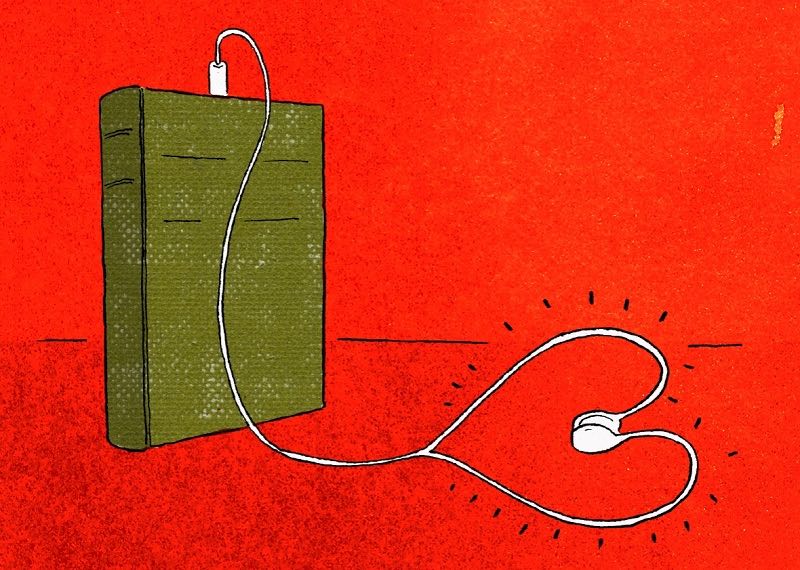
(Illustration by Emily Flake via Slate)
I genuinely hope this article inspires some that have resisted thus far to give audiobooks a chance and hope to receive your own recommendations too, that is, of course, if you got this far down. Perhaps, you would have preferred I read this to you. I know I would.

A development executive at a production house who spends a lot of time reading. Outside of this, a freelance screenwriter often spotted caffeinating or intently staring down audience members who violate the code of conduct at cinemas. You can read his musings on his blog.

